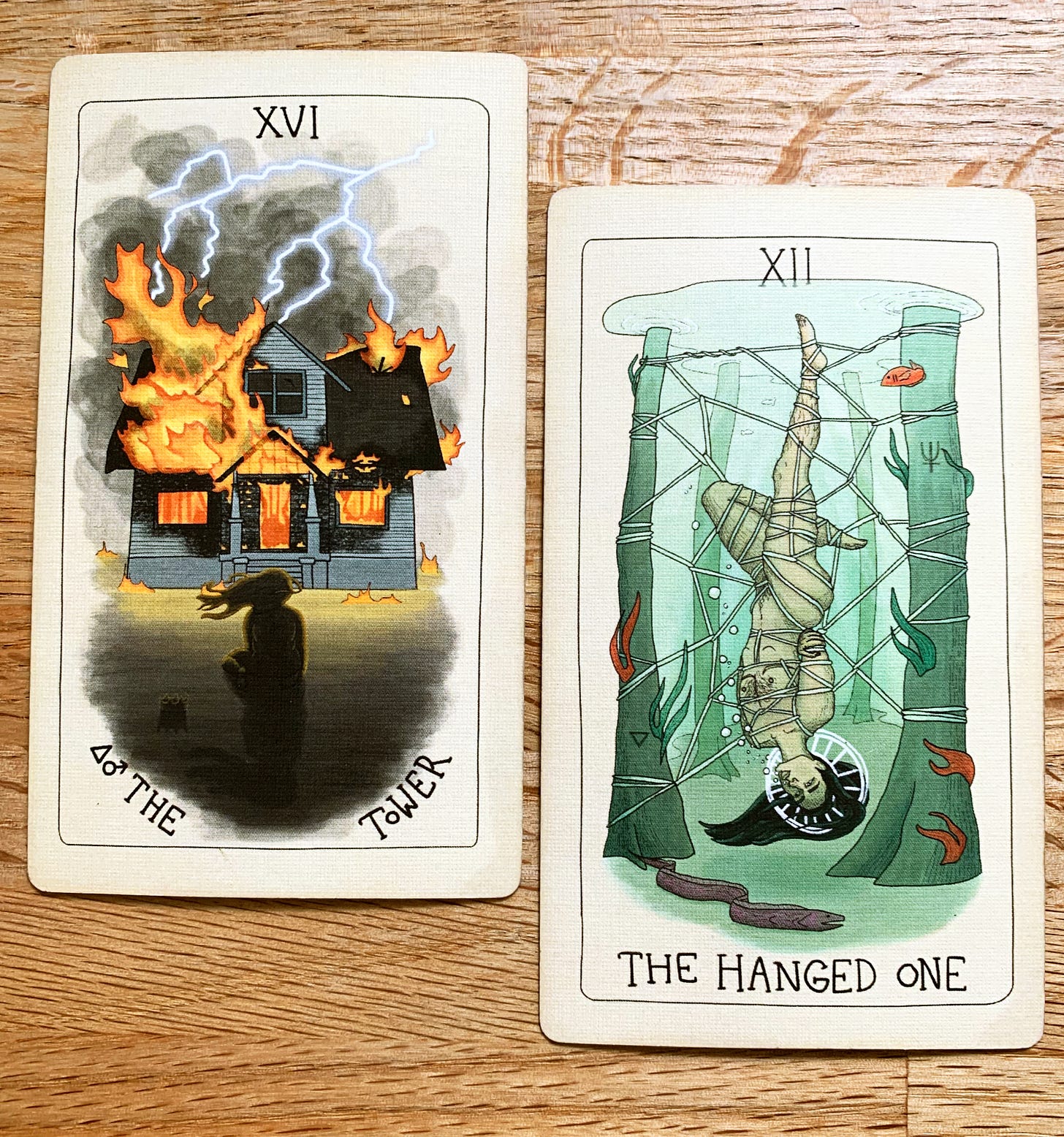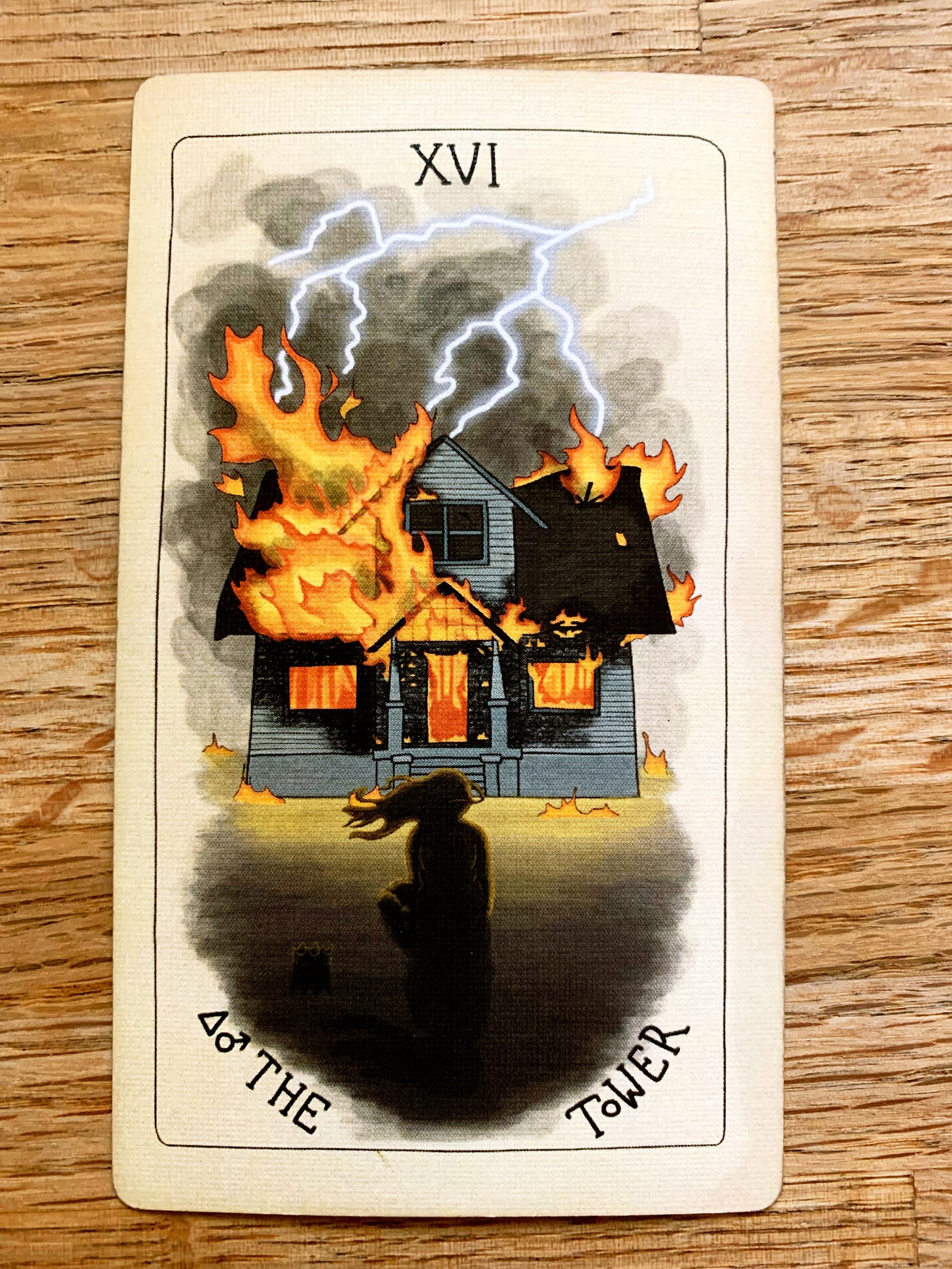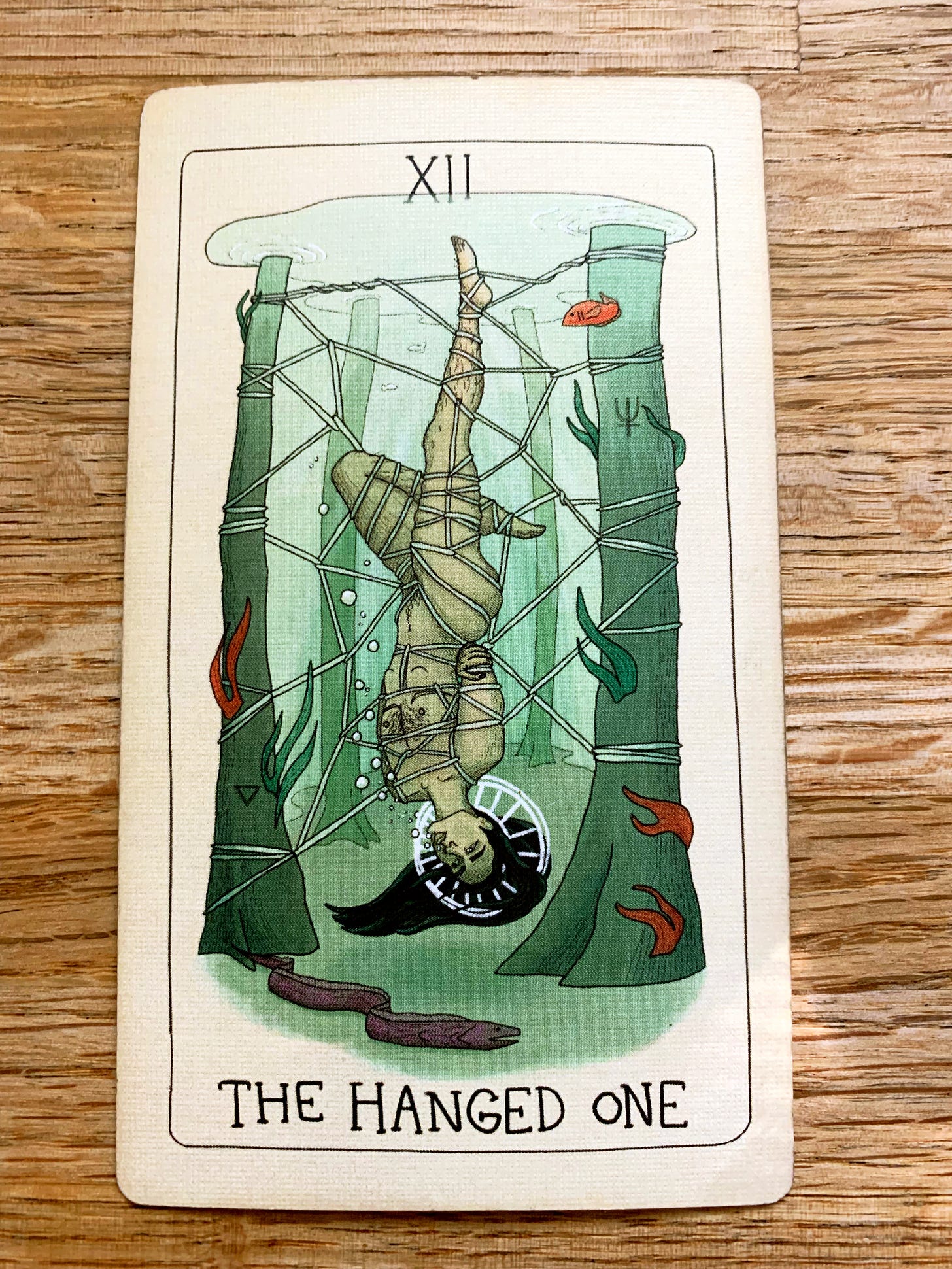On The Discomfort of Slowing Down
A dispatch from the frontlines of learning to move at the pace of my body.
In my last essay, New Planner Fever, I wrote about imagining & embodying a new, decolonized relationship to time. This week’s essay–and at least one more upcoming piece–expands on the same themes.
Does anyone even remember their life before the pandemic? Every now and again, I will come across an old photo of a planner page (thanks, Timehop!) and seriously struggle to recall who was the person who planned for such a day, and how she managed to get herself through it. Seriously, the amount of working OUTSIDE THE HOME and DRIVING between MULTIPLE LOCATIONS (yoga studio! office! coffeshop!) in order to accomplish DIFFERENT KINDS OF WORK (teach classes! yoga therapy sessions! admin & content work!) all in the course of A SINGLE DAY, and then doing it MULTIPLE TIMES A WEEK is, frankly, absolutely bananas, and so far from my current reality that I might as well be reading 18th century diaries of seafaring expeditions to the South Pole. (Seriously. So. Much. Driving.) (Not to mention the packing & carrying of lunch, snacks, and beverages. The mind boggles.)
In January 2020, my life screeched to a halt when I fell at the climbing gym and broke my ankle in three places. I like to joke that I went into lockdown before it was cool. Two months later, everyone else joined me in homebound isolation.
While it was impossible to know it at the time, this would turn out to be the defining Tower moment of most of our lives, the lightning strike that marked a stark before & after.
Cut to now: my life in no way resembles what it was pre-injury, pre-pandemic. I hardly leave my home, all my work having conveniently moved to Zoom, a shift I enthusiastically embrace. I work considerably fewer hours a week. But what feels most striking as I reflect on this is how the pace of my life has slowed down drastically from what it was before. Pre-Tower life felt frenetic, each day scheduled within a quarter-hour of its life, and requiring me to be constantly moving from place to place. Now, the pace of my days is best described as meandering, which feels much more like my body’s natural pace. As a water moon and earth rising, my body feels most comfortable moving at the speed of mud.
Moving at the pace of one’s body in a world traumatized by capitalism and ruptured from its connection from nature is both deliciously luxurious and absolutely terrifying.
If you’d asked me, in my pre-pandemic days, how stressed I was, I would probably have said, Very. If you’d asked me then whether I needed to slow down the pace of my days, I would’ve said, No way. I felt like I was living the dream. Being that busy felt like the appropriate price to pay to feel a sense of legitimacy, to keep imposter syndrome at bay. Plus, I was HELPING PEOPLE! Who NEEDED ME! How could I possibly consider slowing down?
I don’t want to gloss over the terror & trauma of the pandemic (which is still ongoing,) but when I consider the changes it brought to my working life, the overwhelming feeling is one of relief. Relief that I don’t have to do that shit anymore: all the driving, all the showing up in different places. Relief that I get to embrace my natural snail’s pace. Relief, and also the absolute certainty that I would not have gotten off the wannabe-yoga-therapist-influencer hamster wheel without being forcibly kicked off.
I spent most of the last year trying to unlearn striving, the term I use to illustrate the ways in which we internalize the dictates of white supremacy and capitalism. Striving is a trauma response, a survival strategy in which shame (“I am bad”) is activated by a sense of scarcity and urgency. Striving says, “I’m fundamentally flawed and fucked, which is my own damn fault, and in order to ensure my survival in a world where there’s not enough of what I need, I must make myself good, like, yesterday.” And the preferred way of making ourselves good under this paradigm is: doing more stuff, moving faster, and rarely, if ever, resting.
When I look at my pre-pandemic life, I see a hell of a lot of striving.
The thing about survival strategies is: they’re harmful and they’re sucking you dry, but they’re also comforting because they’re familiar and predictable. Inside of the logic of striving, it’s very clear what I need to do in order to be safe, to belong: MORE. More more more. Always more. Survival strategies in general, and striving in particular, operate on the logic of slot machines: once, a long time ago, I put a quarter into this thing, and what I needed (reassurance, validation, the sense that I’m doing a good job) came pouring out of the chute. If it worked once, it’s bound to work again, right? So I keep feeding quarter after quarter of my precious life force into this thing, hoping to hit the needs jackpot.
We mostly stick with the survival strategies not because they’re an effective way to get what we need but because being in survival mode means we can’t afford to try to do things in a different way. Experimentation is very expensive, energy-wise, and in order to keep us alive, our nervous system is intent on energy conservation. So we stay stuck doing the same shit, getting more and more depleted, hoping for a different outcome that never materializes.
Sometimes, only an external, Tower-like destructive force can break the spell that keeps us hypnotized and feeding quarters into the slot machine of our survival strategies. Sometimes the only way we’ll try new ways of being is when we have to rebuild from the rubble of our wrecked protective walls.
It’s clear for me that there’s no going back to the before times. There are so many ways I am luxuriating in the slower pace of my days, from working in PJs a lot, to not having to commute, to the joy of puttering around the house between work tasks and curling up on the couch to watch Friday Night Lights or Grey’s Anatomy at lunch. But I’d be lying if I said that it’s all comfy and cozy.
For one thing, my body has never fully recovered from being hit by the double whammy of injury and pandemic. As a result, I am now navigating what I am slowly learning is life in a chronically-ill body, with restrictions on my movement, energy, and digestion that didn’t exist in the before times and which, for the time being at least, appear to be here to stay.
And also, detoxing from a colonized relationship to time is not for the faint of heart. As much as feeding coins into the slot machine of busyness & productivity is leaving us depleted and empty-handed, it turns out that it’s really hard to stop. Under the surface of my meandering days, there’s a near-constant aggravating itch, a nagging thought of, “Am I not supposed to be doing more? Is it really safe to be moving this slowly, to be honoring the pace of my body?”
Reading Tricia Hersey’s book Rest Is Resistance: A Manifesto last month was an experience as rapturous as it was illuminating, and the central thrust of the book, wrapped in the nutshell of its title, hummed through every page: in order to reimagine a life of liberation and rest, we are going to have to go against some deeply ingrained, hard-to-shake patterns.
Which brings another tarot card to mind, this one as a resource for resisting our inner time colonizer: The Hanged One. In the guidebook to The Fifth Spirit Tarot, creator Charlie Claire Burgess described The Hanged one as “enlightenment through discomfort, a necessary pause, the grace of surrender, sacrifice, limbo, being misunderstood.”
There’s a strong sense that we don’t slow down unless we’re forced to. That unless our hands are tied, like in the card’s shibari-bound figure, we will keep on feeding our life force like coins in the slot machine of capitalism and white supremacy. Even in my slowed-down days, there’s a near-constant urge to speed up, to do more, and I am constantly having to remind myself that we’re not doing things that way anymore. But it’s hella uncomfortable. And scary. A little like being tied up & hung upside down.
Ultimately, what keeps us addicted to the lie of busyness is the elusive promise that, if we just manage to do enough of the right things, we will be granted absolution, and finally be ushered into the inner sanctum of People Who Are Good. And then, presumably, will have earned our rest. Of course this is a crock of shit: there’s only more of the same pouring out of the hell-mouth of the slot machine, which is exhaustion, disconnection, despondency.
It’s one thing to give up on the practice of feeding the beast-machine of busyness: that part was never fun or fulfilling. But giving up on the promise of absolution, on the dream of being welcomed to the inner sanctum of People Who Are Worthy Of Rest? That’s an addiction that’s entirely harder to shake.
Who will tell me that I am good, that I am ok, that I belong if I don’t keep up with the frantic pace of the wellness entrepreneur hamster wheel? Who will give me permission to rest this chronically-ill body?
Post-capitalist, post-productivity validation isn’t something you get out of a slot machine once you’ve poured enough of your life force in. It’s a homemade, from-scratch, inside job of permission, curiosity, compassion, and possibility. And sometimes, it’s necessary for me to bind my hands, Hanged One-style, to keep myself from returning to the old ways. I am working on it.
And you know how that work is going, don’t you?
Slowly. :)
🌈 The new season of White Lotus is out and it is very good.
🌈 Season 2 of The Vow is out and it is some fucked up shit.
🌈 First Aid Kit has a new album and it’s phenomenal, natch.
🌈 My favorite podcast has birthed a new podcast!
🌈 I am snacking on some excellent banana bread at the moment and you can have some, too.









"Being that busy felt like the appropriate price to pay to feel a sense of legitimacy, to keep imposter syndrome at bay."
TOO REAL, FANNY.
What a shared chapter so many of us seem to be living. Thank you for writing about it.